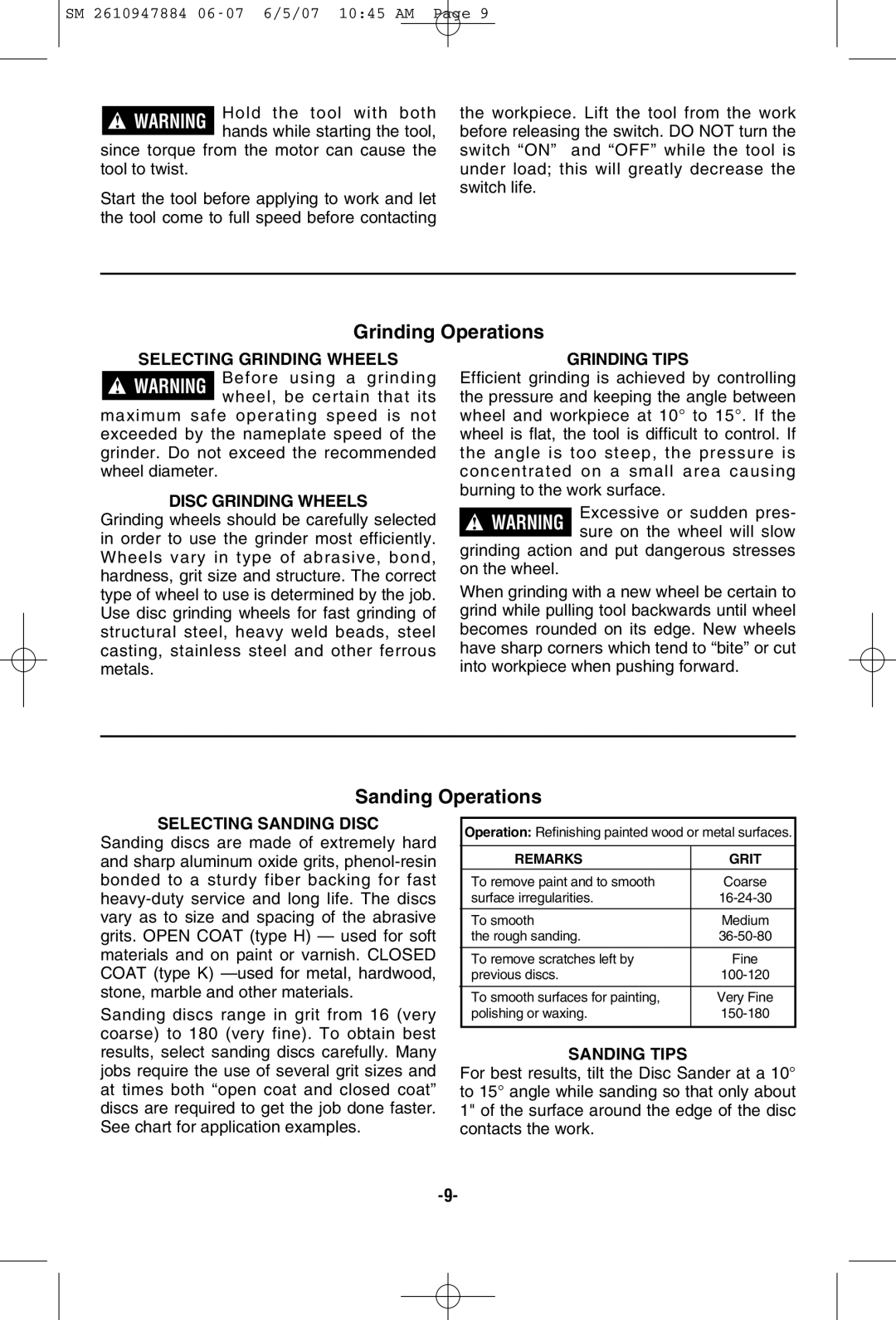
SM 2610947884
!WARNING Hold the tool with both hands while starting the tool,
since torque from the motor can cause the tool to twist.
Start the tool before applying to work and let the tool come to full speed before contacting
the workpiece. Lift the tool from the work before releasing the switch. DO NOT turn the switch “ON” and “OFF” while the tool is under load; this will greatly decrease the switch life.
Grinding Operations
SELECTING GRINDING WHEELS
!WARNING Before using a grinding wheel, be certain that its
maximum safe operating speed is not exceeded by the nameplate speed of the grinder. Do not exceed the recommended wheel diameter.
DISC GRINDING WHEELS
Grinding wheels should be carefully selected in order to use the grinder most efficiently. Wheels vary in type of abrasive, bond, hardness, grit size and structure. The correct type of wheel to use is determined by the job. Use disc grinding wheels for fast grinding of structural steel, heavy weld beads, steel casting, stainless steel and other ferrous metals.
GRINDING TIPS
Efficient grinding is achieved by controlling the pressure and keeping the angle between wheel and workpiece at 10° to 15°. If the wheel is flat, the tool is difficult to control. If the angle is too steep, the pressure is concentrated on a small area causing burning to the work surface.
Excessive or sudden pres- ! WARNING sure on the wheel will slow
grinding action and put dangerous stresses on the wheel.
When grinding with a new wheel be certain to grind while pulling tool backwards until wheel becomes rounded on its edge. New wheels have sharp corners which tend to “bite” or cut into workpiece when pushing forward.
Sanding Operations
SELECTING SANDING DISC
Sanding discs are made of extremely hard and sharp aluminum oxide grits,
Sanding discs range in grit from 16 (very coarse) to 180 (very fine). To obtain best results, select sanding discs carefully. Many jobs require the use of several grit sizes and at times both “open coat and closed coat” discs are required to get the job done faster. See chart for application examples.
Operation: Refinishing painted wood or metal surfaces.
REMARKS | GRIT |
To remove paint and to smooth | Coarse |
surface irregularities. | |
|
|
To smooth | Medium |
the rough sanding. | |
|
|
To remove scratches left by | Fine |
previous discs. | |
|
|
To smooth surfaces for painting, | Very Fine |
polishing or waxing. | |
|
|
SANDING TIPS
For best results, tilt the Disc Sander at a 10° to 15° angle while sanding so that only about 1" of the surface around the edge of the disc contacts the work.
